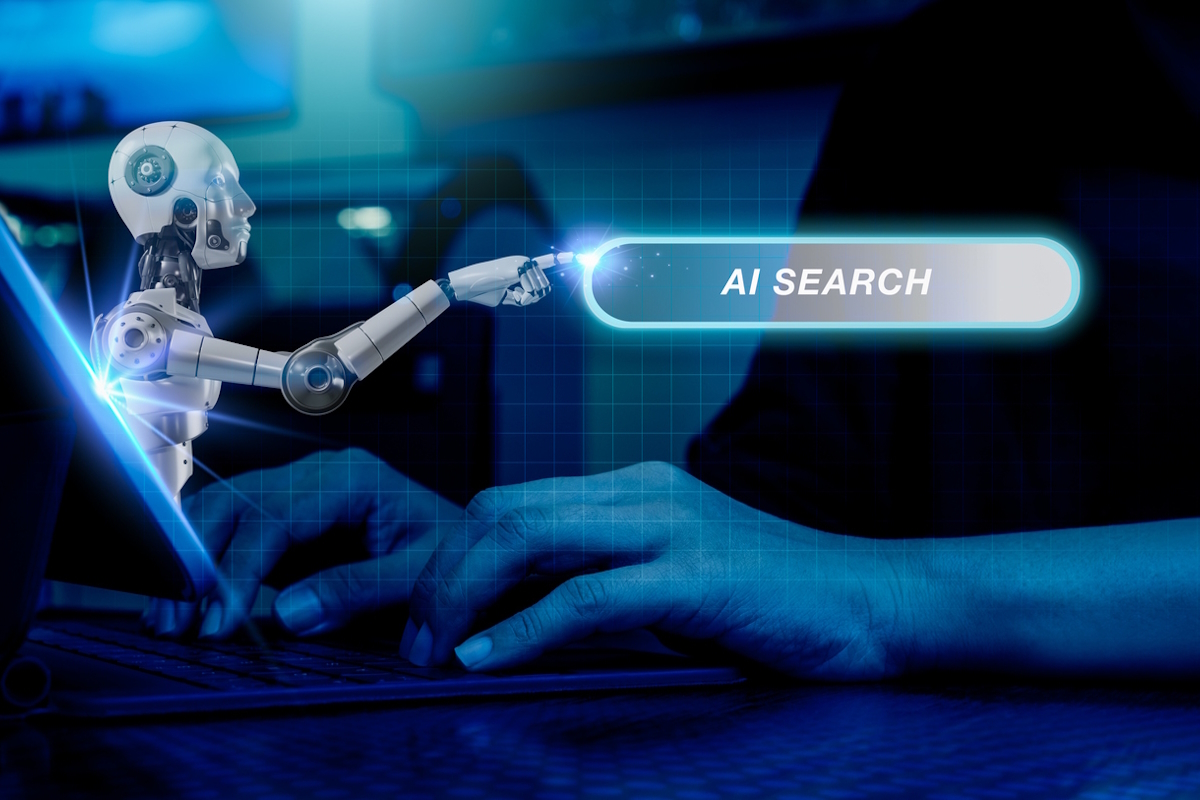Search as a GenAI use case

Gaurav Mathur at Kore.ai explains why search will be the biggest use case for Generative AI
Europe has a huge opportunity to become a key competitor across the AI supply chain. But to realise AI’s full potential, Europe must invest more than it is currently doing so.
Since AI’s inception, Europe has been lagging behind its counterparts, both in terms of investment and slow labour productivity. For example, in 2023, US private investments into AI reached $67 billion, compared to just $11 billion in Europe.
These stark figures are a reminder of how Europe is trailing. But there is still time to realise generative AI’s (GenAI) full potential and remain competitive.
Search: the emerging AI trend
As businesses race towards 2025, one trend emerging above the rest is the evolution of search, powered by GenAI. Far from the static, keyword-based systems of the past, search is rapidly becoming dynamic, conversational and deeply intuitive, enabling organisations to unlock new levels of operational efficiency and customer engagement.
In a time where information is plentiful, the ability to deliver context-aware, personalised responses is no longer a luxury; it’s a necessity that businesses must provide for both its employee and customer experiences to thrive.
Workers are spending as much as half of their day (3-4 hours) doing non-productive work or manual tasks that could be automated, according to Kore.ai’s Employee Experience Benchmark Report. As such, GenAI could play a big role in improving efficiency towards ‘microtasks’ such as searching for information needed to do a specific tasks.
By 2025, search, driven by technologies like Retrieval-Augmented Generation (RAG), will not only redefine customer-facing applications but also become a critical enabler of employee productivity and growth across all industries.
The evolution of GenAI search
Unlike static search algorithms, GenAI leverages natural language understanding and contextual awareness to deliver highly relevant, conversational, and summarized results. This transformation enables search engines and systems to grasp the intent behind queries, providing answers that are not only precise but also actionable. RAG combines the creative capabilities of GenAI with the accuracy and reliability of knowledge retrieval.
This blend allows businesses to build systems that generate responses rooted in verified data, mitigating the issue of "hallucinations"—plausible but incorrect outputs—ensuring both relevancy and trustworthiness. By integrating these advancements, search will become a critical tool for solving both simple and complex challenges and delivering seamless user experiences across a variety of applications.
Enhanced user engagement is a key benefit of RAG, as it delivers personalised, contextually appropriate responses that improve customer and employee satisfaction in sectors like banking and financial services, e-commerce and travel, where instant support and tailored recommendations are key drivers of success. It can draw upon previous behaviours, know your preferences, make suggestions, or find new things and places a person will like - making purchases and trips easy and frequent.
AI in enterprise search
In the enterprise world, GenAI-powered search has already established itself as a powerful tool, transforming how enterprises manage and utilise vast amounts of information siloed in enterprise systems.
With the advent of RAG, organisations can combine GenAI’s natural language capabilities with precise, domain-specific knowledge retrieval. Industries like finance are already seeing a significant impact.
For example, a leading Global Bank is leveraging AI-driven search, empowering its advisors with instant, accurate answers sourced from a repository of over 100,000 documents. This ensures that advisors can quickly access reliable, personalised insights, enhancing client interactions and decision-making. In addition, boosting productivity by streamlining access to organisational knowledge reduces the time spent searching for information and improves the quality of outcomes.
As businesses strive for greater efficiency and agility, AI-powered search is becoming an important enabler of innovation and value creation in all industries operating in the B2B space.
While point solutions offer limited capabilities, enterprises need a comprehensive platform that securely connects information sources and enables AI innovation across teams.
AI in the consumer search space
While GenAI-powered search is gradually being adopted by B2B businesses, the B2C landscape has been slower despite the huge opportunity.
Conversational AI and advanced search algorithms enable real-time, dynamic interactions that provide immediate, contextually relevant responses to customer queries. This capability is particularly impactful in industries such as e-commerce, travel, and healthcare, where personalised experiences drive customer satisfaction, basket size, and loyalty.
AI-powered search doesn’t just provide answers, it anticipates needs, delivering recommendations and solutions tailored to individual preferences and behaviours e.g., the right clothing size or wattage based on other purchases. And by integrating seamlessly across multiple touchpoints—from websites to mobile apps to virtual assistants—search is becoming a unifying layer that ensures consistent and effortless access to information.
German-based Autodoc (a company selling vehicle parts and accessories) has observed 74% first-call resolution using generative AI for its workforce. Yuliya Teteryuk, Customer Care Director said, “Generative AI is shaking up every aspect of work and by using it, our people are happier.”
This evolution not only enhances customer experiences and satisfaction, but also empowers businesses to build deeper, more meaningful relationships with their audiences, enabling greater sustainable growth and advantage over competitors. It also has the dual effect of reducing the likes of product returns for retailers because of the information provided at the point of purchase.
The power of search
As we look toward 2025, the role of GenAI-powered search in both B2C and B2B contexts cannot be overstated. By transforming how businesses access, interpret, and utilise information, GenAI technologies are reshaping customer experiences, enhancing productivity and driving innovation across industries.
According to Gartner, by 2026, traditional search engine volume will drop 25%, with search marketing losing market share to AI chatbots and other virtual agents.
So to stay competitive in this evolving landscape, businesses must embrace advanced AI based solutions as essential tools for their business to stay relevant and thrive. Search, powered by RAG technologies, is poised to become the linchpin for achieving efficiency, fostering innovation, and building meaningful customer relationships.
Now is the time for organisations to invest in AI-driven search solutions to not only keep pace with the demands of an AI-driven world, but to lead it.
Gaurav Mathur is COO EMEA at Kore.ai
Main image courtesy of iStockPhoto.com and Techa Tungateja

Business Reporter Team
Most Viewed
Winston House, 3rd Floor, Units 306-309, 2-4 Dollis Park, London, N3 1HF
23-29 Hendon Lane, London, N3 1RT
020 8349 4363
© 2024, Lyonsdown Limited. Business Reporter® is a registered trademark of Lyonsdown Ltd. VAT registration number: 830519543





